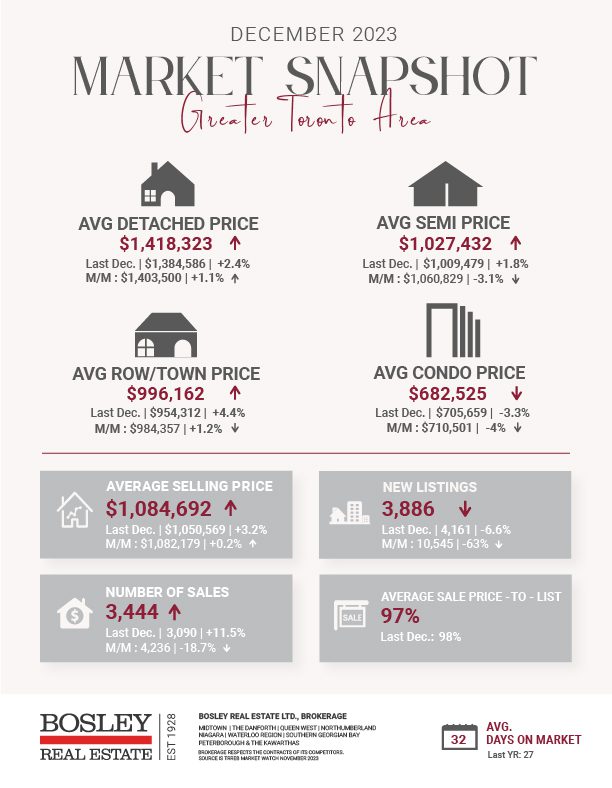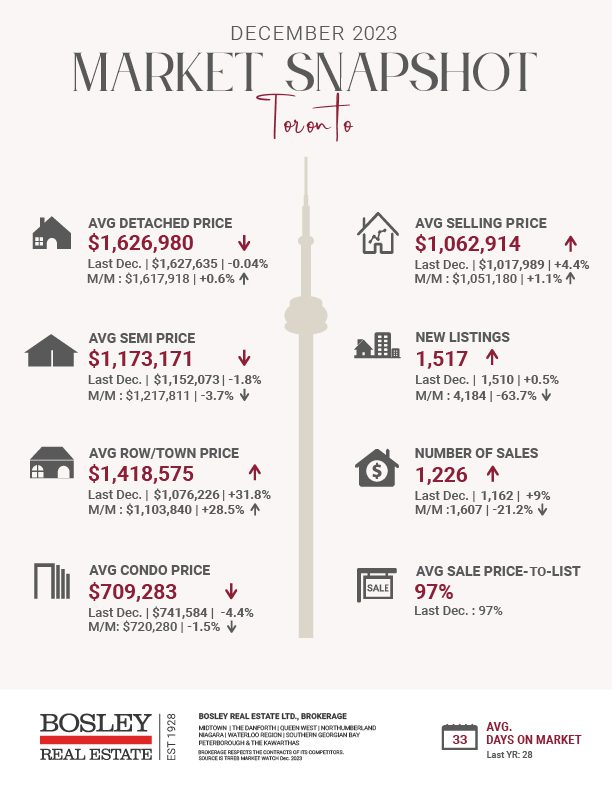


Have you done your declaration for your home occupancy status for 2023?
The City of Toronto is reminding all residential property owners to declare their property’s occupancy status for the 2023 taxation year by February 29, 2024. As part of the Vacant Home Tax program, a declaration must be made each year, even if the owner resides at the property.
A property is subject to the Vacant Home Tax if it is a residential property that is not the principal residence of the owner or permitted residents, is unoccupied for more than six months and does not qualify for an exemption or is a property where no declaration is submitted.
While all owners of properties classified within the residential property tax class must submit a
declaration of occupancy status, the following are not subject to the Vacant Home Tax:
• properties that are the principal residence of the owner
• properties that are the principal residence of a permitted occupant or occupied by a tenant
(including business tenants)
• properties that qualify for an exemption
There are exemptions to the tax, including if the homeowner is in long-term care, if the property is undergoing repairs or renovations or if vacancy has been caused by the death of the owner. Property owners or their authorized representative (for example, a relative or friend) can declare the occupancy status of a property through the secure online portal available on the City’s Vacant Home Tax webpage. Alternatively, owners or their representative can submit a paper declaration form available at Property Tax and Utility customer service counters at Toronto City Hall and all Civic Centres, or by contacting 311.
For the 2022 and 2023 taxation years, a Vacant Home Tax of one per cent of the Current Value Assessment (CVA) will be levied on all Toronto residences that are declared, deemed or determined to be vacant for more than six months during the previous year.
In October, Toronto City Council approved an increase in the tax rate for vacant properties from one per cent to three per cent for the 2024 taxation year, which will become payable in 2025.
To make a declaration of occupancy status, homeowners will need their property assessment roll number and customer number, both of which can be found on their property tax bill. City staff say that revenues from the first full year of the tax were $54 million and with the new increase of three percent it is estimated to bring in roughly $105 million in 2025, nearly double the 2022 revenue at one per cent.
For 2022, there were 2,336 property owners who declared their residential units vacant, while 44,902 other properties were deemed vacant by the city because no declaration was made. Late declarations received through a complaints process by August reduced the number of homes deemed vacant to 17,437.
The goal of the Vacant Home Tax is to increase the supply of housing by discouraging owners from leaving their residential properties unoccupied, and instead making them available for rent or for sale.
If you choose to keep your property vacant, you will be subject to this tax. Investors with units sitting empty will likely be among those paying the tax.
Revenue from the Vacant Home Tax goes towards affordable housing initiatives. Failure to declare or making a false declaration may result in a fine of $250 to $10,000.
Here are the top 5 trending stories of the week:
- Posthaste: Why Canada’s housing market could rebound sooner than many expect | “Canada’s housing market is nearing a “tipping point” and its recovery will start sooner than many expect, says a new report by one of Canada’s leading real estate companies. “I believe the narrative suggesting that the housing market will rebound only when the Bank of Canada lowers rates misses the mark,” said Phil Soper, chief executive of Royal LePage said in the report released today.”
- Canada is caught in a “population trap” and must slow immigration, warn economists | “Canada has been cornered into a “population trap” intensified by its immigration policies, states a recent report published by one of the country’s largest banks. The special report, co-authored by National Bank economists Stéfane Marion and Alexandra Ducharme, warned that while they think immigration tends to be good for a county’s potential GDP, “all good things have their limits.”
- Interest rate shifts will have little impact on rental costs: expert | “A report from Rentals.ca and Urbanation, released on Monday, found the average asking price for a rental in December climbed 8.6 per cent year-over-year, to a record $2,178 per month. Additionally, asking prices for a one-bedroom unit climbed 12.7 per cent on an annual basis to $1,932.”
- It’s Happening Again: Promise Of Rate Relief To Spark Spring Housing Market | “Canadians could see a lower interest rate as soon as spring according to some experts, though the Bank of Canada’s (BoC) Tiff Macklem has been careful not to say anything concrete about cuts and their timing. TD Economist Rishi Sondhi says that while there is still plenty of uncertainty around when the first cut will happen, TD’s position is that it could be in April or June, with a lean towards April.”
- Toronto fails to make list of top Canadian cities people are moving to | “In the face of sky-high rent and rising food inflation, city dwellers have been fleeing urban centres like Toronto in droves over the past few years, seeking out areas where affordability issues aren’t top of mind instead. Recently, American moving truck company, U-Haul, analyzed the top Canadian migration cities and provinces of 2023 to determine the areas drawing in the highest number of new residents, and it might not come as a surprise to some that Toronto failed to crack the list.”

The Bosley Advantage
Read about the heritage and innovation that form the foundation for Bosley’s industry-leading approach to real estate.




